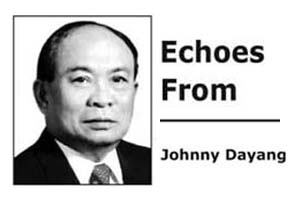By JOHNNY DAYANG
LACKING other intelligent options to raise government revenues, some lawmakers now connive with Finance official to impose taxes on imported books and further degrade the country’s literacy level.
Presidential Decree 1464 issued by then strongman Marcos, generated the common advocacy to allow the entry of imported books tax-free to partially address the lack of authoritative books written by Filipino intellectuals.
This idea was further institutionalized in 1995 with the enactment of RA 8047, the Book Publishing Industry Development Act which created the National Book Development Board (NBDB). The law clearly reflects the state’s recognition of the value of books and the role they play in nation-building, and helps strengthen the publishing industry.
To complement the measure, former President and now House Speaker Gloria Macapagal-Arroyo, in response to the Great Book Blockade, signed Executive Order 885, modifying the rates of duties on certain imported articles under PD 1464 and exempting imported books from customs duties.
Senate president Vicente Sotto III, however, wants this trend destroyed. He filed SB No. 1906 which, if passed will heavily impact on book importation and local publishing. The bill will be made a rider on the Tax Reform for Attracting Better and High-quality Opportunities (TRABAHO) measure.
After surreptitiously inserting a 12% tax hike on paper under TRAIN 1, lifting the tax exemptions under RA 8047 will surely pull down the book industry to the doldrums. Does this reflect the “Eat Bulaga” culture?
NBDB founding chair Dominador Buhain, authors and largely discriminated writers from Mindanao and the Visayas, including this columnist, a former NBDB governor, are united against imposts on book importation and initiatives to promote mediocrity among Filipinos. The domestic publishing industry’s survival deserves support.
Improving literacy through books is universally recognized under the Florence Agreement, signed by the Philippines in 1952. That accord “exempts educational, scientific, cultural materials from any duties.” The 1987 Constitution likewise mandates the government to give as much priority to “education, science and technology, arts, culture, and sports.”
Certain lawmakers seem more interested in taxation at the expense of literacy which, in recent decades, has made Filipinos less competitive in ASEAN and in Asia. We cannot just remain indifferent; we must actively oppose the Sotto initiative.
Happily, Buhain and other book publishing industry leaders relentlessly continue to promote the value and vital role of books in nation-building.

